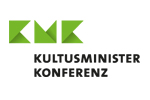The national report on education, Education in Germany, is an important element of educational monitoring in Germany. The report on education has been published every second year since 2006. The DZHW is responsible for the chapter on higher education. Since September 2018 DZHW is represented by Prof. Dr. Sandra Buchholz in the group of authors. The reports have three characteristic features: firstly, they cover the entire education system from early childhood education and school education to vocational training, higher education and adult education. Secondly, the reports are indicator-based, using official statistics, representative socio-scientific surveys and large-scale assessments. Thirdly, the reports are periodically updated and use a core set of indicators that remain the same in each report. The reports are compiled - under the coordination of the DIPF | Leibniz Institute for Research and Information in Education - by the German Youth Institute (DJI), the Leibniz Institute for Educational Trajectories (LIfBi), the German Institute for Adult Education - Leibniz Centre for Lifelong Learning (DIE), the German Centre for Higher Education Research and Science Studies (DZHW), the Sociological Research Institute at Göttingen University (SOFI), the Federal Statistical Office and the statistical offices of the Länder. They are jointly commissioned by the Standing Conference of Länder Ministers of Education (KMK) and the Federal Ministry of Education and Research (BMBF).
The 10th Education Report (2024): Education in Germany 2024. An indicator-based report with an analysis of vocational education and training
The Education Report 2024 continues the reporting on the higher education sector with the proven indicators on higher education institutions, transition to higher education, first-year students, study course and higher education degrees. The great importance of higher education for professional qualification in Germany is evident in the rate of first-year students: since 2011, almost half of young adults from Germany have enrolled in higher education - in 2005 it was not even one in three. And, although there is currently a stagnation in participation in higher education, current forecasts assume that higher education institutions will have to prepare for a renewed increase in the number of first-year students. In addition to updating the key figures, findings from two scientific intervention studies are also addressed, which show that social inequalities at the transition to higher education can be sustainably reduced through counselling and support services. The chapter also focuses on the links between higher education and vocational education and training.
Vocational education and training is also the focus of the Education Report 2024, which is based on a broad understanding of vocational education and training that encompasses not only dual vocational education and training, the school-based vocational training system and the transition sector, but also continuing vocational education and training and higher education as areas of education that also provide vocational skills. Issues of governance and quality assurance in vocational education and training, career guidance, trajectories, drop-outs and reorientation as well as the benefits of vocational education and training on the labour market are addressed.
The Education Report 2024 can be downloaded in full or as a compact version (both only in German language). The DZHW press release on the publication of the Education Report 2024 can be found here (in German).
Report on Education, 9th volume, 2022: Education in Germany 2022. An indicator-based report with an analysis on the education staff.
In its higher education chapter, the Education Report 2022 builds on the indicators of previous reports. It traces the structural changes in the higher education system as well as current trends in the demand for studies, the duration of studies and the number of graduates. Continuing an analysis from the Education Report 2020, it is also shown which factors contribute to the fact that students from non-academic backgrounds are less likely to enroll in higher education and to what extent. At several points, the report also addresses the impact of the Corona pandemic on the study program and students. While courses were able to switch to online formats very quickly at the beginning of the pandemic, at the same time problems became apparent, such as the lack of direct social contact and exchange that students and faculty alike missed, and for some students, more difficulties in financing their studies.
The focus chapter on educational staff points out, among other things, the special features of qualification for academic teaching, which is in the higher education sector much less formalized than, for example, for teachers in schools or for staff in early education. For several educational sectors, including higher education, a strong expansion of educational staff in the last decade is noted. However, because student enrollment has increased at roughly the same rate, staffing ratios have remained largely stable.
The Education Report 2022 can be downloaded in its entirety or as a compact version. To accompany the publication of the Education Report 2022, the DZHW has also issued a press release highlighting selected findings from the higher education chapter. (All publications available only in German.)
Report on Education, 8th volume, 2020: Education in Germany 2020. An indicator-based report with an analysis of education in a digitalized world.
For the higher education sector, the Education Report 2020 traces the structural changes brought about by the establishment of new, in some cases specialized universities and the increasingly diverse range of study courses. It highlights the key role that universities play in education and training of the skilled workforce in Germany. Rising student and graduate numbers make this clear, as do the good job market opportunities for graduates. At the same time, problems remain in study effectiveness, as shown by the increasing duration of studies or the persistent dropout rate. The report also points out that participation in higher education continues to be unequal according to social origin and migration background.
The focus chapter on digitization in the Education Report 2020, which was essentially prepared before the Corona pandemic, could only marginally address the effects of the pandemic on teaching. Whereas the possibilities of digital teaching had been used rather cautiously at universities up to that point, the pandemic forced a major change, but one for which universities were better prepared than other educational sectors.
Report on education, 7th volume, 2018: Education in Germany 2018. An indicator-based report with an analysis of the impacts and returns of education.
The 2018 National Report on Education’s chapter on higher education institutions (HEIs) traces three main lines of development in higher education: the ongoing growth in higher education affecting not only student numbers but also higher education staff and the range of study programmes offered; diversification of study programmes offered and student diversity; and structural change, particularly in relation to the role of higher education for qualifications and the job market. In addition, indicators from previous years are continued (programmes offered, access to HEIs, starting a degree, course of studies, degrees and graduate careers) or addressed afresh (teaching staff at HEIs). The core section on the impacts and returns of education makes clear how much individuals and society benefit from higher education.
Report on education, 6th volume, 2016: Education in Germany 2016. An indicator-based report including an analysis of education and migration.< br/> The report Education in Germany 2016 has been published in June 2016. The chapter on higher education - once again done in collaboration with Prof. Dr. Andrä Wolter (Humboldt University Berlin) - presents four indicators (Higher education institutions and study programmes; transition to higher education and new entrants; educational careers; degrees and graduate transition). A new indicator on German higher education in its international/European context has been added. Each report on education includes a focus chapter. Ten years after the publication of the first report in 2006, the focus section of the 2016 report once again examines the topic of migration and education. The DZHW uses data analyses of the DZHW Panel Study of school leavers as well as NEPS-data, among other sources.
Report on education, 5th volume, 2014: Education in Germany 2014. An indicator-based report including an analysis of the situation of people with special educational needs and disabilities.
For the fifth report on education the DZHW provided the indicators on higher education (chapter F). For the first time the report included an indicator on the study programmes at German higher education institutions, also providing information on new forms of study programmes, e.g. dual study programmes. An indicator on teaching personnel in higher education was also included. The indicators on the transition into higher education, on educational pathways and on graduates and their transitions after graduation were continued.
The focus chapter of the report on education 2014 analyses the situation of people with special educational needs and disabilities. Regarding higher education the DZHW also compiled and analysed, amongst others, data of the Social Survey, the German National Association of Student Affairs (DSW) and the Research Group on Higher Education (AG Hochschulforschung) at the University of Konstanz.
Report on education, 4th volume, 2012: Education in Germany 2012. An indicator-based report including an analysis of arts education throughout the life course.< br/> For the focus chapter on arts education in summer 2011 students were surveyed regarding their cultural and arts interests and activities. Results of the survey can be found in chapter H in the 2012 report.
Report on education 3th volume, 2010: Education in Germany 2010. An indicator-based report including an analysis of demographic challenges for the education system.
"Education in Germany 2010" includes a focus chapter on demographic challenges for the education system. The DZHW contributed its expertise in developing the concept for the education projection that was carried out by the Federal Statistical Office.
Report on education, 2th volume, 2008: Education in Germany 2008. An indicator-based report including an analysis of transitions subsequent to lower secondary education.< br/> The report on education 2008 focused on transitions after leaving secondary education. The DZHW contributed chapters on the transition into higher education and the transitions after graduation into the labour market and continuing academic education.
Report on education, 1th volume, 2006: Education in Germany. An indicator-based report including an analysis of education and migration.
The first report on education was published in 2006, containing a well-received analysis of education and migration. This topic is once again the focus issue of the 2016 report on education.
In addition to the work on the reports on education the DZHW is also involved in the updating of tables on the website of the report (www.bildungsbericht.de) and in the further development of indicators to improve the long-term observation of the education system.




